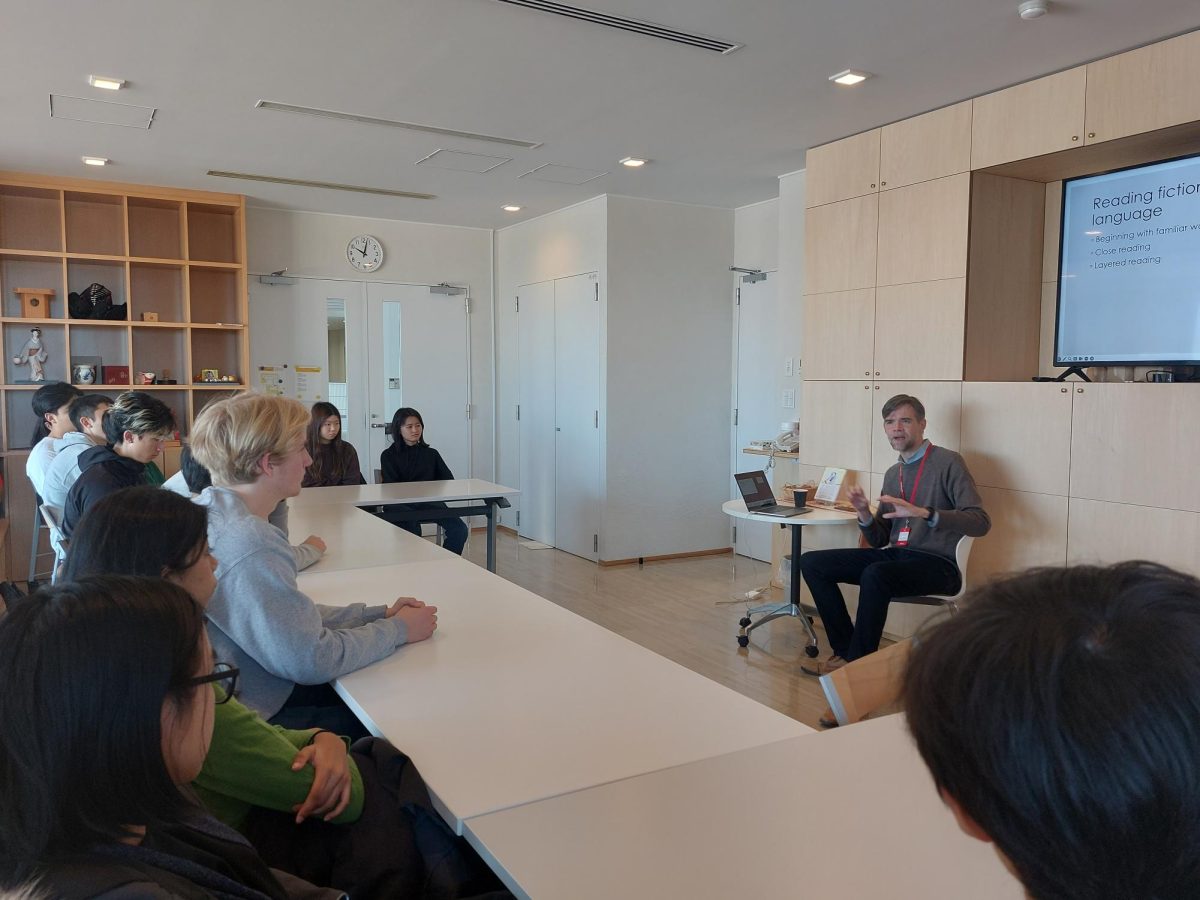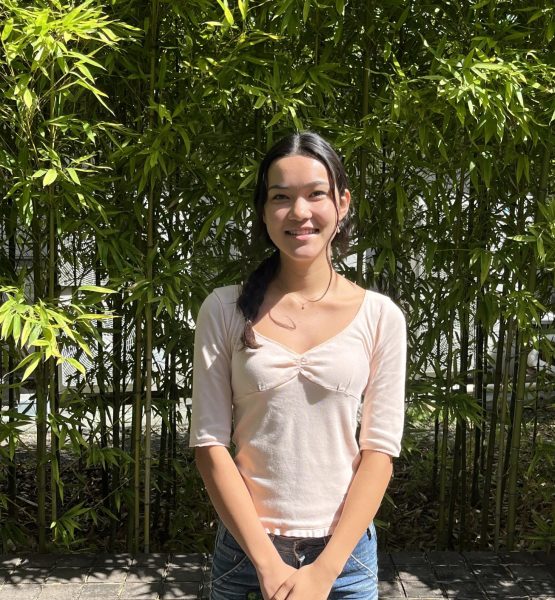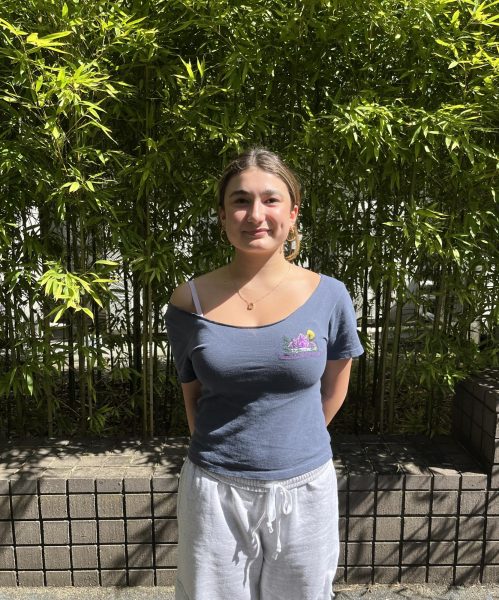Last month, the ASIJ English and Japanese departments had the privilege of hearing from Gregory Khezrnejat, a transnational writer and professor at Hosei University. As a diverse student body with a wide range of nationalities influenced by Japanese culture and language, ASIJ students had a lot to learn from Dr. Khezrnejat.
Dr. Khezrnejat was born and raised in South Carolina. He grew up with an Iranian-born father who spoke fluent Persian, but Dr. Khezrnejat himself only spoke English. While he was in high school he had the opportunity to study Japanese and decided to take on the challenge. His studies sparked a profound interest in the language and he continued learning Japanese through college, eventually becoming an assistant language teacher at Dōshisha University in Kyoto in 2007.
Since then, Dr. Khezrnejat has written three novellas, all in Japanese. His first novel, Kamogawa Runner (2021), won the second annual Kyoto Literature Award and his most recent story, Kaikonchi (2022), was nominated for the Akutagawa Prize, the most prestigious literary award in Japan.
Because Dr. Khezrnejat does not write in his native language, English, his work is classified as transnational writing, a unique category of literature that highlights the distinctiveness of the author’s international perspective.
However, Dr. Khezrnejat is not the first transnational Japanese author. Others include Chinese-born Yang Yi who won the Akutagawa prize in 2008 for her Japanese novel Toki ga Nijimu Asa (A Morning When Time Blurs) as well as Hideo Levy, an American-born novelist who won the Noma prize for his first novel Seijoki no Kikoenai Heya (The Room Where the Star-Spangled Banner Cannot Be Heard.)
Aside from the intrigue of a native-English-speaker writing and publishing literature in Japanese, the genre of transnational writing has additional allures. Dr. Khezrnejat asserts that it is not just a distinct voice that is identifiable, but that through his writing, he can shed light on the foreign experience.
Dr. Khezrnejat notes that many transnational writers tend to lean into their foreign identities and write about the experiences they have that are considered unique in Japan. For example, Shirin Nezammafi, an Iranian author who writes in Japanese, is known for her book Salam, in which she illustrates the struggles of immigration into Japan.
Dr. Khezrnejat himself has also utilized his experiences as a foreigner to create compelling narratives. The Akutagawa-prize-nominated Kaikonchi is a story about an American boy who studies in Japan, exploring the internal conflicts of what it means to feel “at home.”
Although his foreign perspective comes as an advantage in terms of appealing to Japanese audiences, Dr. Khezrnejat admits that it can sometimes be frustrating to be categorized as a foreign writer. Though technically his work passes as normal Japanese literature (as it is written and published in Japanese), he is puzzled to find his novels in the foreign books section of many libraries. He says that it would be nice to see his work to be in the same category as native-Japanese literature, attracting audiences for the writing itself and not just for the “foreign” intrigue.
Another obstacle Dr. Khezrnejat has encountered as a transnational writer is crafting his stories while grappling with a non-native language. Especially when he characterizes an American experience, certain attributes and features are difficult to depict in a language completely foreign to the American lifestyle. Delineating the American Southern dialect, for example, proves challenging.
Though, at the same time, Dr. Khezrnejat says that the struggles of writing in a nonnative language actually increase the quality of his work. The process of learning a new language requires close attention to the intricacies of words, forcing him to be hyper-aware of how he crafts the language in his stories.
Though Dr. Khezrnejat aims to capture an almost native-sounding voice, he admits that the deviation of his writing from a native Japanese voice creates a distinctive Bungakusei (“literary nature”) in his writing, which adds to the appeal of his work. Because of this, his editor, who is a native Japanese speaker, often refrains from refining Dr. Khezrnejat’s writing too much.
As an international community, many students, faculty, and members of ASIJ speak multiple languages or have been exposed to many languages in their lives. Dr. Khezrnejat talks about his own experiences with his students at Hosei University and the personality shifts that occur when students speak their native language as opposed to their second language.
While some students express themselves similarly when speaking both English and Japanese, others experience a noticeable change when switching languages. This shift alters how they communicate ideas and thoughts that come across differently in the other language. The code-switching and personality shifts that Dr. Khezrnejat notices in his students as they alternate between languages can also be seen among many members of the ASIJ community.
Both a source of struggle and insight, multilingualism and the opportunity to be exposed to many different cultures and languages is something to be cherished in the ASIJ community.



